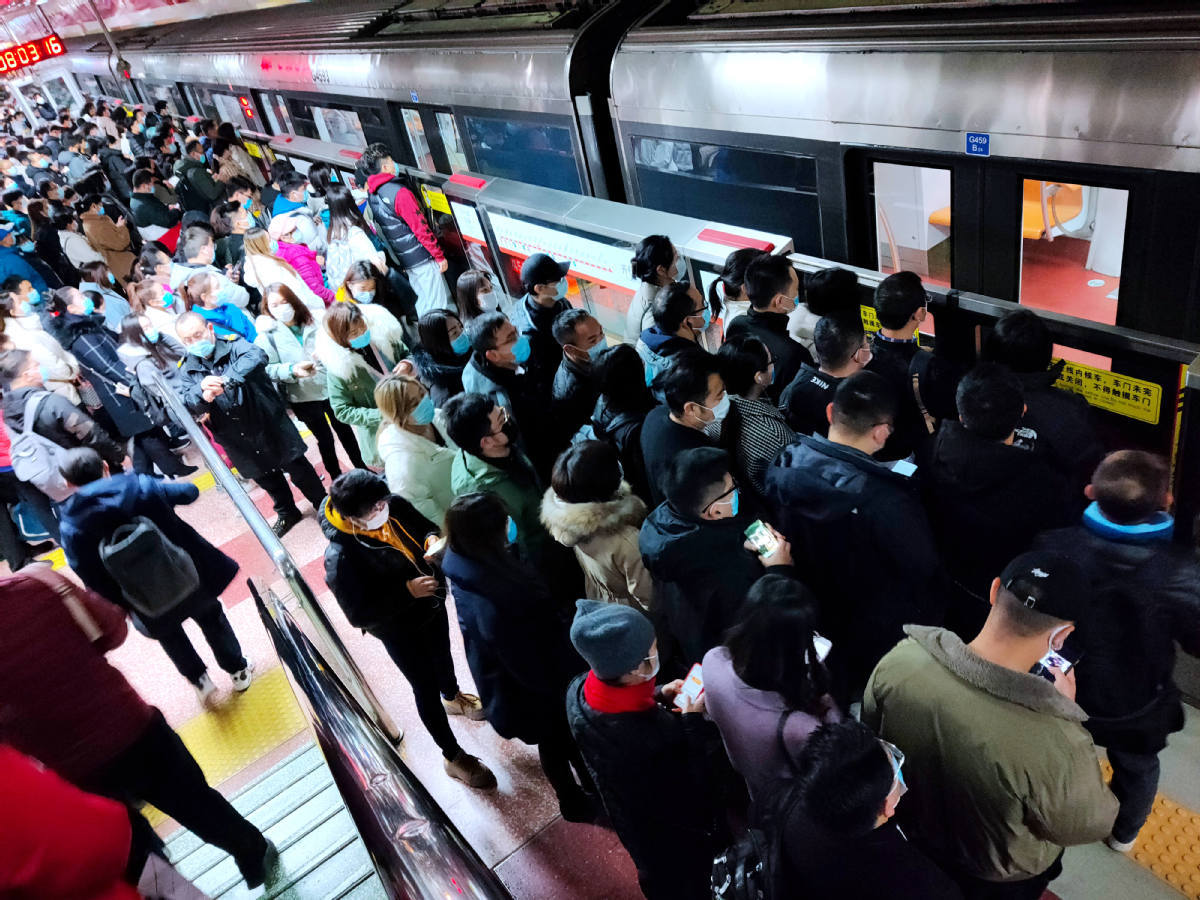
Commuters line up to board a subway train during the morning rush hour at Sihuidong station in Beijing in November. (Photo: China Daily)
High real estate prices trigger long journeys
Many people living outside Beijing and commuting long distances to work in the capital dream of ending these monotonous journeys.
Beijing residents typically spend more than an hour making a single trip to work in a metropolitan area of 16,410 square kilometers, much larger than New York City.
Some people, especially members of the younger generation who cannot afford apartments in the downtown area, choose to live in much cheaper cities in neighboring Hebei province.
The majority of this group, which numbers more than 300,000, are determined to pursue a better life.
Li Xiaobai, 31, an engineer living in Langfang, Hebei, said, "When I got married five years ago, I did lots of research on all the residential communities that I could possibly afford in Beijing.
"Both my wife and I work near the East Third Ring Road. The average price of apartments near our workplaces was about 90,000 yuan ($13,824) per square meter. We could not even afford the down payment. Prices are even higher now," Li said.
"We checked real estate projects that are further away, including some on the Fifth Ring Road and the Sixth. However, the support facilities are unsatisfactory, as there is a lack of kindergartens, schools and hospitals."
At the time, the couple had been renting for several years and had become tired of landlords raising rents annually. They set their sights on new real estate projects outside Beijing.
"We wanted a place of our own so much, especially as we were planning to have a baby," Li said.
The couple and their 3-year-old daughter now live in a residential community in Guangyang district, Langfang, about 50 km southeast of the center of Beijing.
Every morning on a work day, they rise at around 5 am, before heading to work by car an hour later. They spend 40 minutes on expressways and another 25 minutes traveling within Beijing to their offices.
There is no subway line between Beijing and Langfang. Some bus journeys between Beijing Railway Station and Guangyang take more than two hours, so driving is the best option for commuters to get to work. Some 80 percent of the residents in the area work in Beijing.
Li said at least nine real estate projects in the area are targeting people who work in Beijing, rather than local residents in Langfang.
"The area we live in is not close to downtown Langfang city. Locals usually don't choose to live here. Those who buy property in the area choose to do so because it's easy to lead a dual-city life," he said.
"We have to get up early to reach Beijing before 7am, avoiding the morning rush hour. Otherwise, we would have no idea when we would arrive at our offices."
However, asked whether they would move back to Beijing in future, Li said: "Of course. We sleep outside Beijing, but our dreams are there.
"My career, my connections and my future will always be in Beijing. I told my wife I will work harder to make more money for our family, especially our lovely daughter, to give us a home in Beijing in the near future. That's my promise."


